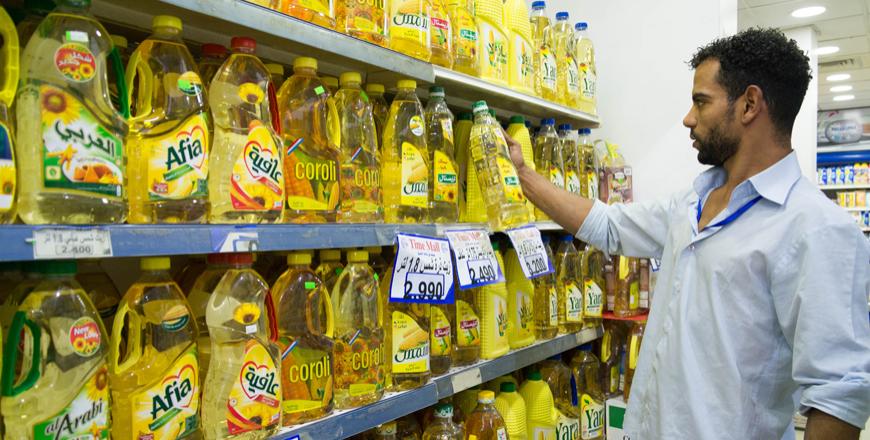You are here
International Silica Industries Co. slips in muddy Mideast
By Samir Ghawi - Aug 03,2015 - Last updated at Aug 03,2015

AMMAN — Regional turmoil is taking a toll on International Silica Industries Company (ISIC).
According to a disclosure to the Jordan Securities Commission, the company's accumulated losses reached JD0.8 million at the end of June 30, 2015.
The losses began in 2012 when the company was in the red by JD0.1 million, increasing to JD0.2 million in 2013 and JD0.3 million in 2014.
Prior to that, ISIC showed signs of regression generating lower profits that dropped from JD0.2 million in 2010 to JD0.1 million in 2011.
"Due to continued political instability in the region, the company is in a jam with a sharp and noticeable shortage in cash liquidity," the auditor wrote in the notes clarifying the summarised interim financial statements.
"The turbulence played a role in raising production costs and shipment charges, weakening sales to neighbouring countries, and causing an inventory pile up," PricewaterhouseCoopers Jordan said in the financial review.
Noting that ISIC recently secured a JD0.2 million credit facility from a local bank to ensure cash liquidity necessary for operations, the auditor added that the company is seeking higher credit ceilings from banks in order to have the needed liquidity to maintain sustainability.
PricewaterhouseCoopers 'Jordan' indicated that the company's management was also trying to look for other options to guarantee the endurance and development of ISIC.
"The financial statements were prepared based on the principle of continuity," the auditor said, although it mentioned that the conditions cast deep doubt on the capability of the company to proceed as an ongoing concern.
Board Chairman Ayman Hatahet told the shareholders in the 18th annual report covering the year 2014 that sales to the main markets, such as Saudi Arabia, Iraq and Syria, dropped sharply.
He pointed out that a 62 per cent fall in overall sales last year had a great impact on the results expressing hope that events and harsh conditions in neighbouring countries and the repercussions of the financial crisis would not persist much longer and that the surrounding situation would improve.
To minimise the negative effects on the company and the inability to market the silica due to lower prices of materials and higher costs , Hatahet said ISIC opted for "Talc", a new product other than silica.
The chairman added that the company experimented with 1,000 tonnes of talc towards the end of last year and that results were positive in terms of production and sales.
He expected the new product to open new markets, locally and abroad.
Detailing ISIC's performance, the 2014 annual report showed that sales last year totalled 3,796 tonnes, 6,241 tonnes lower than the 10,037 tonnes in 2013.
The sales in 2014 amounted to JD0.4 million, JD0.2 million were inside Jordan. In 2013, sales stood at JD0.5 million, JD0.4 million of which were exports..
It attributed the sharp drop in sales to the sudden increase in shipping charges and the decline in prices in Saudi Arabia, greatly curtailing the company's sales competitive capability.
This regression caused 2014 losses to increase by 51 per cent.
Production also went down last year as the silica flour and talc output of all kinds plunged 69 per cent to 3,418 tonnes from 11,009 tonnes.
ISIC extracts, upgrades and micronises the sand from a mining area in Ras Al Naqab, south of Kingdom, that proved the deposit to be of high quality. The quarry supplies the current plant in Khan Al Zabeeb/Dabaa.
Being a basic raw material in various industries, the product is used in ceramics, glass, fiberglass, construction chemicals, foundries, filler materials, paints, mortar, GRC, chemical industries and adhesives among others.
Midyear financial results as of June 30, 2015 showed that sales trebled from JD0.1 million to JD0.3 million
But because production costs exceeded sales in both periods, operational losses doubled from JD0.1 million to a JD0.2 million when administrative and selling expenses were added.
The balance sheet at the end of June 2015 showed total assets at JD2.3 million, JD1.3 million of which were the value of property, and equipment.
Inventory amounted to JD0.8 million and receivables totaled JD0.1 million.
Capitalised at JD2.4 million, shareholders equity came at JD1.6 million, mainly due to accumulated losses mentioned above.
Out of JD0.6 million in total liabilities, JD0.5 million were bank debts.
According to the annual report, International Silica Industries employed 24 workers at the end of last year and capital investment was estimated at JD1.4 million.
The report listed the following as the major shareholders: Ayman Hatahet (27.2 per cent); Jordan International Insurance (17.5 per cent); Qais Fuad Saad Abu Jaber (13.2 per cent); Travertine Company (11.8 per cent); Fuad Saad Farhan Abu Jaber (11.7 per cent); and Kim Fuad Saad Abu Jaber (10 per cent).
Related Articles
AMMAN — Rum-Aladdin for Engineering Industries seems to be going down the voluntary liquidation road when shareholders hold an extraordinary
AMMAN — Al-Qarya Food and Vegetable Oil Industries Co.
AMMAN — It is customary for different kinds of businesses to become public shareholding companies, but Al-Ekbal Printing & Packaging Co.














